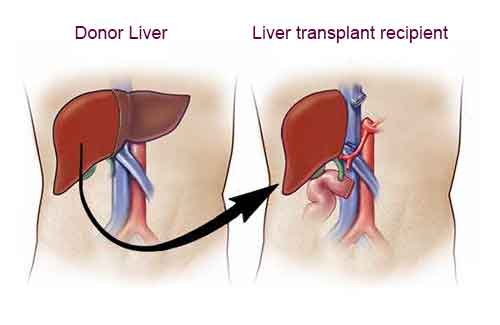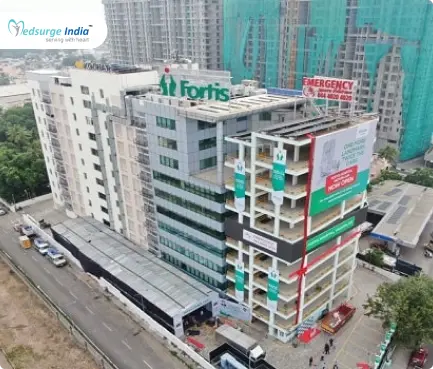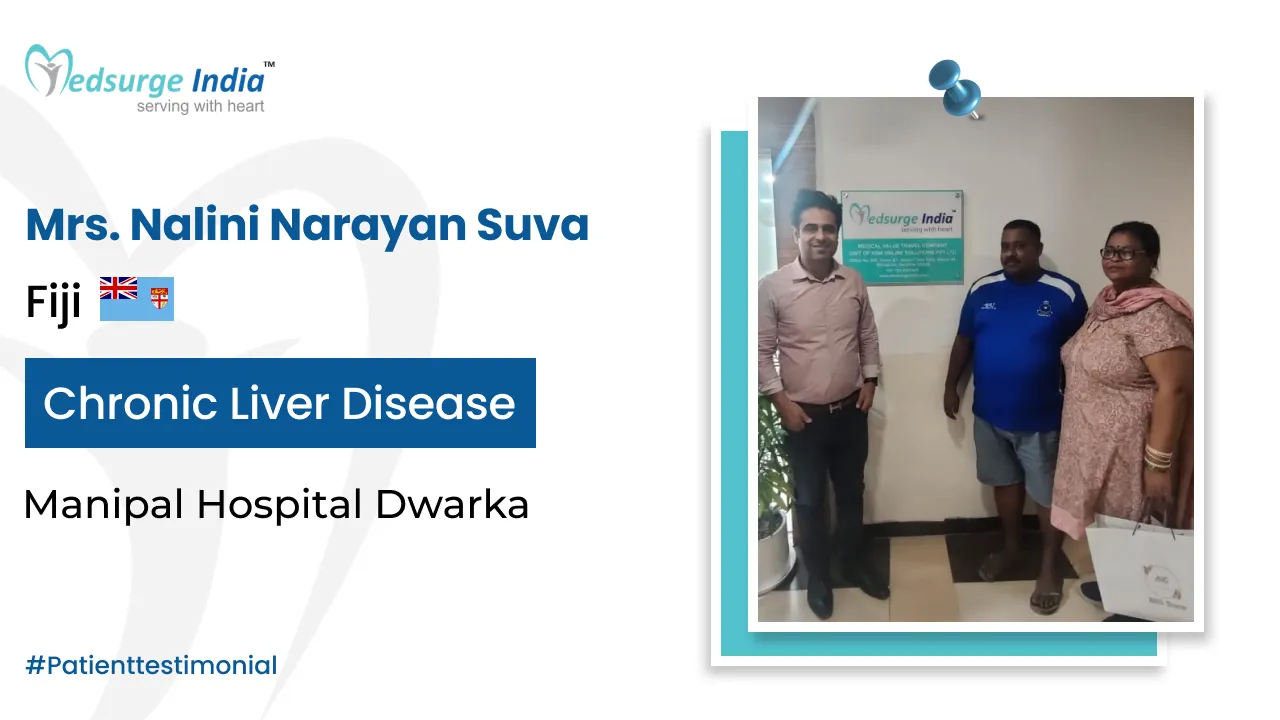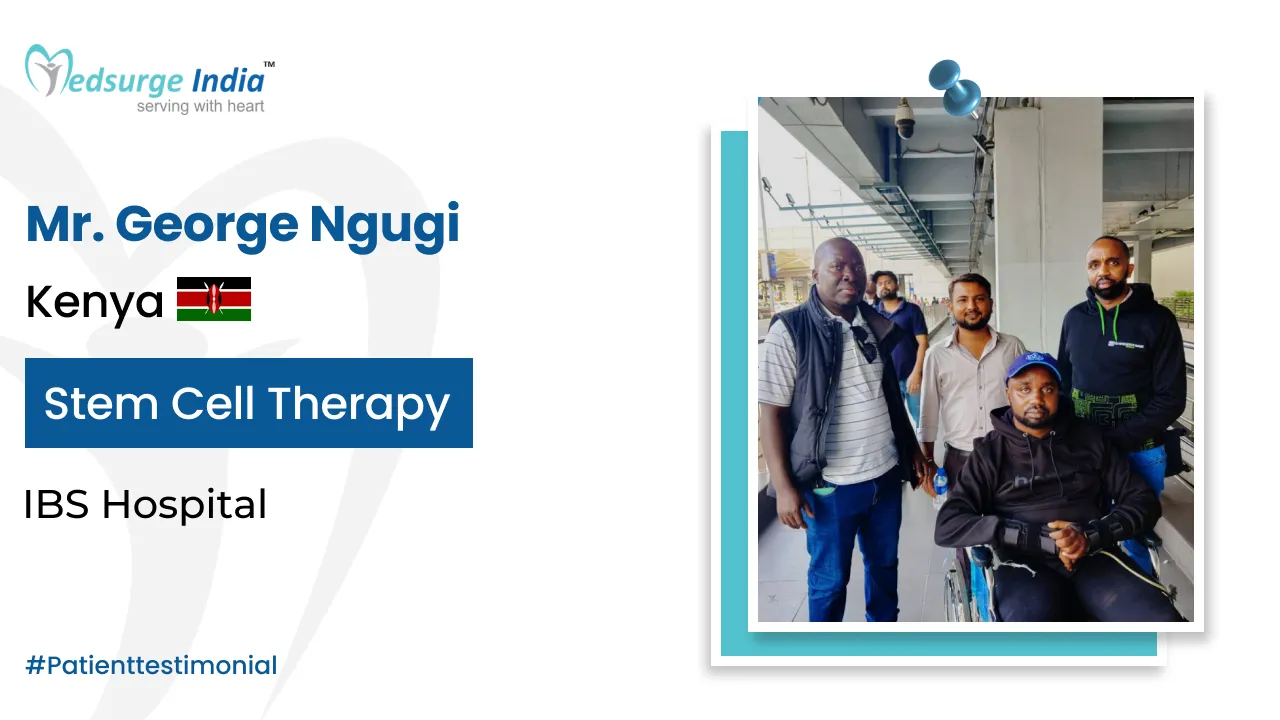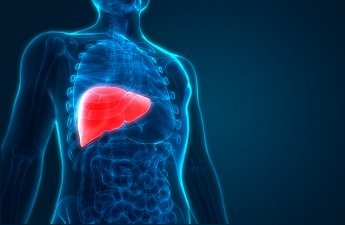
Liver transplants have been one of the most successful developments in the healthcare business as more research and developments are done over time. Due to an increase in surgical procedures and technical advancements over the past several decades, this medical therapy is presently experiencing its golden age in India. Contact our expert to learn more about the liver transplant cost in India.
After multiple failed efforts, the first successful living donor liver transplant alongside a deceased pig liver transplant happened in November 1998. In 2014 alone, 1,200 liver transplant packages were made possible by a creative rise in the healthcare industry.
India has been one of the most well-liked countries for medical tourists worldwide thanks to these figures and the fact that Indian team physicians are knowledgeable about the most recent advancements in the healthcare sector.
The Liver Transplant Cost in India is more affordable than in countries like the US. For patients coming for treatment of liver transplant in India, the best hospitals are available with affordable healthcare packages and top-quality equipment or apparatus with the assurance of excellent treatment quality and top-class doctors.
Liver Transplant Cost In India
On Average Liver Transplant cost in India ranges between Rs. 15 Lakh to Rs. 33 Lakh ($18,000 to $40,000). But Liver Transplant cost in India can also vary depending on the type of hospital. There are a lot of reasons that convince individuals to choose liver transplant in India for their medical care. Aside from the price gap, the standard of health care services is another motive.
Cost of Liver Transplant in Different Cities in India
| Cities | Starting Price In USD |
| Bangalore | 20,000 USD |
| Delhi | 19,000 USD |
| Mumbai | 20,000 USD |
| Gurgaon | 18,000 USD |
| Hyderabad | 20,000 USD |
| Chennai | 18,000 USD |
| Kolkata | 18,000 USD |
| Pune | 18,000 USD |
Factors That Effect The Liver Transplant Cost in India
- Doctor’s competence and experience in the subject.
- The patient’s situation: The patient’s disease and whether additional modalities are required for comprehensive treatment.
- The liver transplant in India price package can depend on the hospital’s preference.
- Duration of hospitalization and stay in the country.
- Need for post-operative care.
- Hospital room classification.
Comparison of Liver Transplant Cost in Different Countries
| Countries | Starting price in USD |
| India | 18,000 USD |
| Turkey | 35,000 USD |
| UAE | 48,000 USD |
| Thailand | 45,000 USD |
| Malaysia | 51,000 USD |
Success Rates of Liver Transplant in India
The success rate of liver transplants in India ranges from 85% to 90% in terms of one-year survival post-transplant. The success rate are quite promising when compared with global standards. With the advancements in surgical techniques, post-operative care, and the expertise of skilled medical professionals, the outcomes have significantly improved over the years. Renowned hospitals and specialized transplant centers across the country have contributed to these high success rates, providing hope and effective treatment options for patients with severe liver conditions.
What Is the Liver
The liver is a huge, meaty organ located on the right side of the abdominal cavity. The liver weighs around 3 pounds, is reddish-brown in colour, and is rubbery to the touch. Generally, you can’t feel the liver as the rib cage protects it.
Our liver is divided into two primary regions i.e. the right and left lobes. Underneath the liver are the gall bladder, the pancreas, and parts of the intestine.
Why Someone Might Require a Liver Transplant
Without a functioning liver, you cannot survive. A person may require a liver transplant if their liver is no longer functioning properly. If you have end-stage liver disease (chronic liver failure), a liver transplant may be advised as a chronic liver condition are severe and can be potentially fatal to you. There are several liver disorders that might cause it. A frequent cause of advanced liver disease is cirrhosis. It affects the liver and is persistent.
End-stage liver disease can also be brought on by the diseases listed below:
- Acute liver necrosis: At this point, liver tissue starts to deteriorate. Among the potential reasons include unfavorable drug, medicine, or toxin reactions and acute infections.
- Biliary atresia: A baby is affected with a rare liver and bile duct disorder.
- Hepatitis virus: The most common cause is hepatitis B or C.
- Metabolic conditions: These are the disorders that alter the chemical activity of liver-related cells.
- Early liver malignancies: These tumors are malignant and originate in the liver.
Autoimmune hepatitis: Liver edema or redness (inflammation). This happens when the immune system in your body attacks your liver.
Functions of the liver
Our liver is known to control a majority of our chemical levels in the blood and excretes bile serum. This helps in the removal of waste materials from the liver. The liver filters every drop of blood that leaves the stomach and intestines. The liver transforms drugs into forms that are safer for the rest of the body or simpler to utilize as it processes blood, balances chemicals, produces nutrients, and breaks down and balances substances. The liver is responsible for more than 500 essential processes. The following are some of the most well-known functions:
- During digestion, the synthesis of bile facilitates the elimination of waste and the breakdown of lipids in the small intestine.
- Creation of certain proteins in blood plasma
- Cholesterol and certain proteins are created to aid in the transportation of fats through the body.
- Glucose is balanced and produced as needed.
- The quantity of blood’s amino acids, which serve as the building blocks of proteins, is controlled.
- Iron is extracted from hemoglobin (which the liver stores).
Conditions That a Liver Transplant Treat
It is frequently employed as a final resort. Due to fierce competition, even if you are fortunate in receiving a donor’s liver, it might not always be able to address the underlying problem. Some chronic liver conditions just restart the new liver’s destruction. Starting again with a healthy liver might buy important time, but these problems typically take months to develop.
Liver transplant Surgery is often reserved for:
Chronic liver failure
Chronic liver failure is the last stage of a protracted, progressive liver illness. It frequently means that your liver tissue has been replaced by an excessive amount of scar tissue, which has poor blood flow. Cirrhosis of the liver is another name for this illness. If your liver functions start to deteriorate, you’ll start to show signs of “decompensated” liver disease.
Acute liver failure
Acute liver failure happens when a previously healthy liver experiences substantial damage. Poisoning by chemicals or infections might be harmful. Hepatic insufficiency symptoms, which are indicators that your liver is no longer working, are markers of acute liver failure. This situation is critical. In certain circumstances, acute liver failure can be reversed, but not in others.
First-stage liver cancer or Primary liver cancer
Hepatocellular carcinoma is another name for the type of cancer that starts in your liver and is referred to as primary liver cancer. If the cancer doesn’t spread elsewhere, the liver can be removed for treatment. Your doctor may occasionally be able to remove only the piece of your liver that contains the tumor after partially resetting your liver. However, a transplant may be necessary if your liver is injured.
Liver Transplant:
A liver transplant, also known as a hepatic transplant, involves swapping out a sick liver for a healthy one donated by another person. There are a tonne of other advantages in addition to being a genuine treatment for severe liver failure or adrenal liver disease.
You may be a candidate for a liver transplant if none of the medical treatments for a liver condition doesn’t work for you:
- Hepatitis B
- Hepatitis C
- Alcoholic liver disease
- Fatty liver disorder or Non-alcoholic steatohepatitis
- Autoimmune hepatitis
- Wilson’s disease
- Formerly failed liver transplant
- Polycystic disease
- Hemochromatosis
- Liver cancers
- Primary biliary cirrhosis
- Acute liver disease
Afterward, he/she must undergo a liver transplant.
Top 10 Liver Transplant Doctors in india
Different Types of Liver Transplants:
In India, more than 80% of liver transplants from living donors take place, as opposed to Western regions where around 90% of transplants come from dead donors.
Deceased Donor transplant:
- If the patient is brain dead, then he’s deemed dead along with his liver is about to be transplanted.
- The liver has been transplanted into the necessary individual on the waiting list after fitting the deceased person’s blood type and measurements.
- The liver may regenerate, therefore it is occasionally cut in half and concurrently transplanted into two patients—a youngster and an adult.
Liver Donor Transplant:
- Liver lobe transplants from living donors are used to replace diseased livers.
- An individual who donates must be a close relative, such as his or her father, mother, grandparent, child, spouse, or grandchild.
- The liver regenerates/regrows to the regular dimensions and this procedure begins when the liver is divided/transplanted.
- It takes around 2-3 weeks for their complete liver to return to its original size.
Requirements & Evaluation: Live Liver Donor:
Given that liver donation constitutes an organ transplant, both the donor and the receiver are subject to all Indian legal requirements.
- Only certified physicians possess the authority to run a liver transplant.
- Cadaver transplants should be performed on brain dead.
- In accordance with the Act and its rules, the board of medical professionals must approve the removal of brain-dead persons’ cells.
- Live contributions from near relatives ought to be invited more rather than non-near comparative.
- The State Government sets up a Coordination Committee to manage all transplant-related problems that require the existence of the parties.
- If the donor and recipient are not connected by blood, then there should be no commercial interest in the donation, which should be disregarded by the permission committee chosen by the authorities.
Get Free Cost Estimation
Procedure
Pre-Operative Evaluation Process For Liver Transplantation
As liver transplantation is a large step, so, one must embrace a positive mindset before becoming treated. The test is a step-by-step procedure that starts with the receiver’s evaluation. When the individual is qualified for transplantation, the search for donors at the household starts based on their own blood collection.
After the consent committee has given its approval, the transplant process normally takes two to three weeks if the donor is identified.
Measure 1: Pre-transplant Recipient Evaluation
– After the individual is diagnosed with coronary artery disease disorder and needs the transplant, the transplant group performs a set of evaluation tests like blood tests, and CT scans.
– The test generally takes 7-10 days that’s an inpatient procedure.
Measure 2: To Pick The Donor
– Selecting the donor has become the most crucial portion of the full procedure. The donor must fulfill these standards:
– A relative related by blood according to the Act.
– When the contribution is not a blood relative, the authorization committee established by the government must approve it and state that there is no commercial interest.
– Age set between 18-55 years without any obesity difficulties.
– The donor’s liver dimensions ought to be sufficient enough to give the needed sum of the portion.
– Compatible blood collection together with the receiver
– Additionally, it mandates that HLA testing and fitting be completed prior to the consent committee meeting.
Together with the above-mentioned procedure, the individual and the family need to manage the remedy emotionally, mentally, and financially. They must possess the strength necessary to handle situations of this nature. For the finest & most reasonable liver transplant cost in India, get in touch with our specialists.
Risks And Complications: Post-Liver Transplant Management
Out of risks and complications, there are two Big complications That Have to be Cared for and they’re:
1. Organ Rejection:
– The immune system attempts to attack the transplanted liver because it can’t distinguish between the transplanted liver and undesirable viruses and bacteria.
– greater than 30% of liver transplant patients undergo a certain level of organ rejection in the initial year.
– consequently, physicians prescribe anti-rejection drugs or immunosuppressants to prevent organ rejection when the immune system attacks the transplanted organ.
2. Infection:
– Since the anti-rejection drugs suppress the immune system, liver transplant patients eventually become prone to ailments.
– Occasionally, these illnesses go away by themselves.
– a few patients don’t experience any disease in any way, whereas in other circumstances, infections are treated efficiently as they’re diagnosed.
Why Do Individuals Prefer to Have Liver Transplant in India
The country has some of the best medical care facilities and services in Asia, making medical tourism in India very popular. The best liver transplant hospitals in India provide all types of disease-related surgeries using advanced technology. Also, the liver transplant price in India is much more affordable as compared to other states or nations around the world. An international patient can expect to pay 50-60% less for a liver transplant in India.
The best liver transplant in India provides comprehensive appropriate treatment, including comprehensive pre-operative evaluations, minimally invasive surgical options, and post-operative rehabilitation programs. Patients can expect personalized treatment, individualized attention, and compassionate care at these medical facilities. The hospitals are accredited by top international organizations such as the National Accreditation Board for Hospitals and Healthcare Providers (NABH) or the Joint Commission International (JCI).
What to Look for When Choosing a Liver Transplant Hospital in India
Indian hospitals that perform surgery for liver transplants are well-known for their hospitality and patient care services providing the finest transplant hospital and surgeons in India. However, choosing a suitable hospital for treating liver transplant in India can be difficult for an international patient. It is a significant decision that must be made with several factors in mind, including:
- Quality certificates and accreditations
- Hospital and transportation facility location
- Team of doctors and surgeons
- Advanced diagnostic and therapeutic equipment
- International patient assistance
How Can Medsurge India Help?
Medsurge India is a prestigious support system for patients looking for doctors, hospitals, and specialized treatments. Our staff will provide you with a list of licensed, renowned, and trustworthy physicians and medical facilities in relation to your medical needs. Additionally, we offer a treatment strategy that fits your budget. Apart, we assist patients with obtaining travel authorizations, medical visas, and a multitude of other things.
The Most Important Frequently Asked Questions
Q: What Is the Most Common Complication of a Liver Transplant?
A: Arterial and venous thrombosis and stenosis, biliary problems, fluid collections, neoplasms, and graft rejection are the most prevalent and clinically significant consequences.
Q: Who Is Not a Candidate for a Liver Transplant?
A: Person 65 years of age or older with a serious illness. Diabetes has caused substantial organ damage. With extreme Obesity. Hepatitis B is a severe and aggressive liver disease.
Q: What Happens If Liver Transplant Rejection?
A: You may experience some moderate symptoms if you are rejected, while some individuals may feel OK for a while. Fever over 100° F (38° C), elevated liver function tests, yellowing of the eyes or skin, and exhaustion are the most prevalent early signs.
Q: What Are the Side Effects After a Liver Transplant?
A: Elevated blood pressure, changes in mood, hair loss or growth, elevated blood sugar, bone and muscle weakness, kidney dysfunction, nausea, vomiting, diarrhea, and headache are all common side effects of post-transplant medications.
Q: How Long Does a Liver Transplant Surgery Take?
A: Transplanting the liver normally takes six to twelve hours. During the procedure, your liver will be removed and replaced with a donor’s liver. Surgeons will need to insert multiple tubes in your body because a transplant is a significant procedure.
Top Hospitals for Liver Transplant in India
Top Doctors for Transplant Surgery
Dr. Ravi Mohanka
Consultant , MS, DNB, MBBS, Fellowship, Fellowship
Experience: 17 years of experience
Mumbai, India
Dr. Sonal Asthana
Senior Consultant , MBBS, MS, MS, MSc, Fellowship
Experience: 17 years of experience
Kochi , India
Dr. Amit Rastogi
Senior Consultant
Experience: 20 years of experience
Medanta – The Medicity, Gurgaon
Gurgaon, India
Dr. Somnath Chattopadhyay
HOD
Experience: 10 years of experience
Kokilaben Dhirubhai Ambani Hopsital
Mumbai, India
Dr. Mohammed Abdun Nayeem
HOD
Experience: 22 years of experience
Apollo Hospitals, Greams Road, Chennai
Hyderabad, India
Dr. Punit Singla
Associate Director , Fellowship, DNB, MS, MBBS
Experience: 11 years of experience
Noida, India
Dr. Rahul Roy
Senior Consultant
Experience: 16+ years of experience
NH Rabindranath Tagore International Institute of Cardiac Sciences, Kolkata
Kolkata, India
Dr. Mathew Jacob
Consultant , Fellowship, Fellowship, MBBS
Experience: 12 years of experience
Kochi, India
Dr. Thiagrajan Srinivasan
Senior Consultant
Experience: 14 years of experience
Medanta – The Medicity, Gurgaon
Gurgaon, India
Dr. Mallikarjun Sakpal
Consultant
Experience: 16 years of experience
Aster CMI Hospital (Hebbel) Bangalore
Bangalore, India
Dr. Abhideep Chaudhary
Vice Chairman & HOD - HPB Surgery & Liver Transplantation
Experience: 20+ years of experience
BLK Super Speciality Hospital, New Delhi
New Delhi, India
Dr. Sanjay Govil
Senior Consultant
Experience: 26 years of experience
Apollo Hospital (Bannerghatta Road) Bangalore
Bangalore, India

